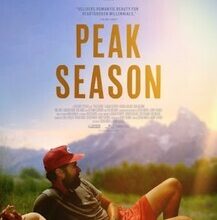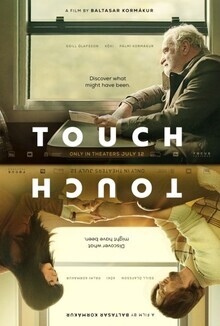
Touch
Touch
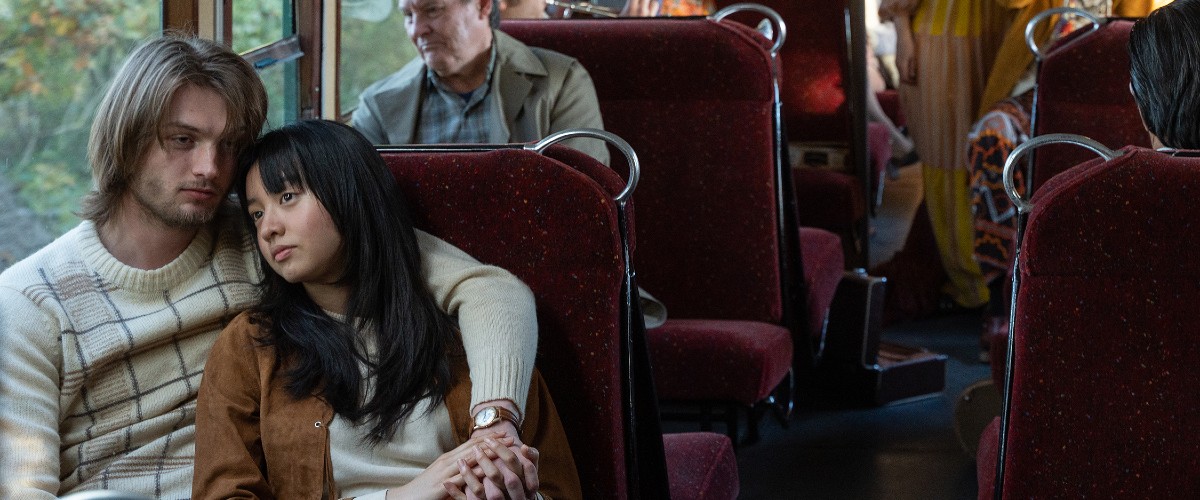
“Touch,” from Icelandic director Baltasar Kormákur, is vast in scope, stretching over decades, languages, continents, and cultures, with themes of memory, aging, loss, and love. But its sensibility is as exquisitely tender as the flutter of a butterfly wing.
Kristófer (Egill Ólafsson) is an elderly widower and restaurant owner in Iceland who visits his doctor to talk about some diminishing of his memory and fine motor skills. The doctor orders an MRI and gently suggests that this might be a time for Kristófer to consider any unfinished business or any unresolved issues he may wish to address while he still can. This brings on a flood of memories of Kristófer’s first love when he dropped out of graduate school in London and went to work in a Japanese restaurant. He decides to go to London to see if he can find her 60 years later. This is all happening in March of 2020 when the world is shutting down in the early days of the COVID-19 pandemic, and his daughter makes increasingly worried and frustrated phone calls, but Kristófer does not have time to wait.
As he travels and investigates, we travel back and forth in time between the present and the past to see the young Kristófer (Palmi Kormákur) and Miko (Yôko Narahashi) in 1960s London. Cinematographer Bergsteinn Björgúlfsson captures these memories in soft, warm colors that contrast with the cooler palette of the present day.
Kristófer, frustrated with his studies and participation in student protests, impulsively responds to a help-wanted sign on the door of a Japanese restaurant owned by Takahashi-san (Masahiro Motoki). That is where he first sees Miko, Takahashi-san’s daughter. After a conversation about Kristófer’s work on a fishing boat off the coast of Iceland, Takahashi-san hires him as a dishwasher. Luscious food, prepared with care and artistry, appears throughout the story, and a meal that Kristófer prepares for Miko is as dreamily romantic and thrillingly sensual as the scenes of them in bed together.
The young couple talk about John Lennon and Yoko Ono holding a Vietnam War protest “bed-in,” which places it in 1969. Kristófer talks about it as a political act, staging a protest in a five-star hotel. But Miko sees it as opening up possibilities for cross-cultural romance in an era when the memory of WII was still very present for all countries involved. When Kristófer’s school friends come to the Japanese restaurant, they joke about kamikazes. And Miko has a tragic personal connection to the devastation of the war.
In present-day London , Kristófer is able to track down one of the other employees of the restaurant, who tells him that Miko is now in Japan. As masks, hand sanitizers, canceled flights, and temperature checks appear around him, and as we learn more about the past, Kristófer continues to look with a sense of purpose but also with an appreciation of the world around him. In one scene, a Japanese “salary man” (office worker) sits next to him at a restaurant counter. They have a frank, alcohol-fueled conversation filled with warmth and good fellowship and end up doing karaoke together.
Kristófer buys a pair of shoes. When he finds that a tattoo parlor is in the space the Japanese restaurant once occupied, he gets a tattoo of a Japanese character. Like its main character, this movie is willing to meander a bit, with welcome breathing room that adds to the gentle, quiet tone. Some movies would make this a race, with Kristófer facing dire medical test results and lockdowns everywhere. But “Touch” is as delicate as its title suggests, its tone and lush visuals perfectly suited to the kind of first love that is utterly captivating to the young and then, no matter how many years go by, imperishably vital.
Kormákur (son of the director) and Ólafsson do not quite look like versions of the same person, but what we see is Kristófer’s memories, and he might very well want to think of his younger self as tall and beautiful. Kormákur’s soulful eyes and graceful use of his lanky body tell us as much about his character’s thoughtful sincerity as his immersion in Japanese language and culture. His scenes with the lovely Narahashi have a poignant warmth. Despite their strong chemistry, we see inevitable problems long before Kristófer does.
Kristófer is not trying to reclaim his youth, get an apology or even an explanation. He just wants to see Miko again. There’s no other goal, no agenda. As he tells someone from his past who asks if he is still a communist, “I was more of an anarchist. Now I’m just old.” The film’s embrace of compassion and forgiveness for everyone is heartwarmingly spacious. It shimmers with grace.

Nell Minow
Nell Minow is the Contributing Editor at RogerEbert.com.
Now playing
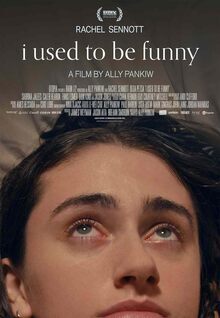
I Used to Be Funny
Monica Castillo

Space Cadet
Nell Minow
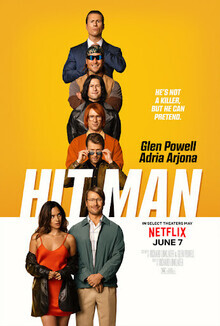
Hit Man
Brian Tallerico
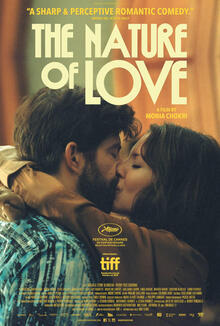
The Nature of Love
Peyton Robinson
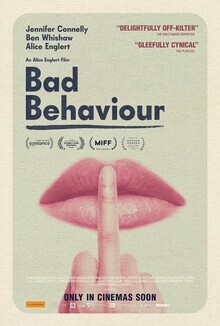
Bad Behaviour
Sheila O’Malley
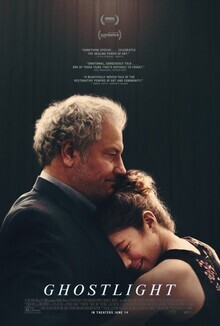
Ghostlight
Matt Zoller Seitz
Film Credits
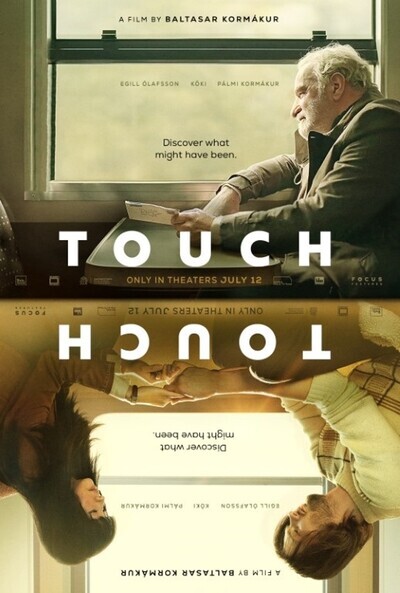
Touch (2024)
120 minutes
Cast
Egill Ólafssonas Kristófer
Yôko Narahashias Miko
Masahiro Motokias Takahashi-san
Ruth Sheenas Mrs. Ellis
Tatsuya Tagawaas Arai-san
Director
- Baltasar Kormákur
Writer
- Baltasar Kormákur
- Ólafur Jóhann Ólafsson
Latest blog posts
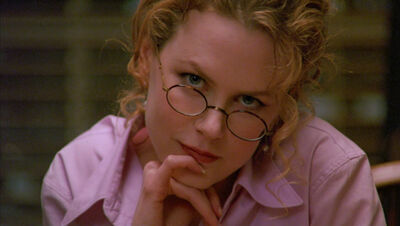
No Dream Is Ever Just a Dream: Eyes Wide Shut Turns 25
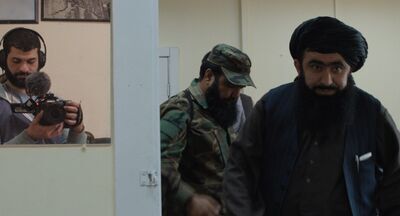
Ibrahim Nash’at Filmed the Taliban Up Close for a Year. ‘Hollywoodgate’ Was the Harrowing Result.

A Force For Good: Richard Simmons (1948-2024)
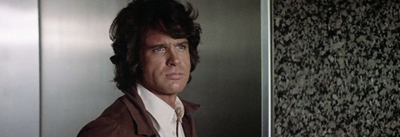
There Will be No Questions: The Parallax View, the Ultimate Conspiracy Thriller, Turns 50
Comments
comments powered by Disqus



